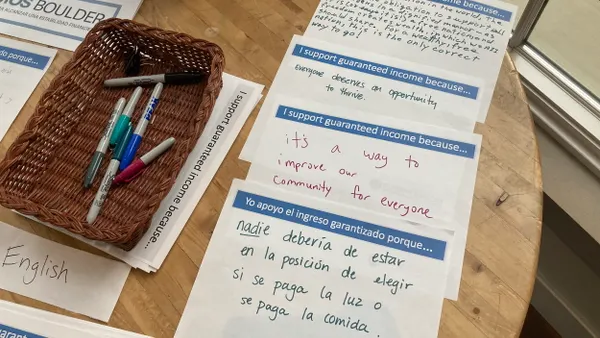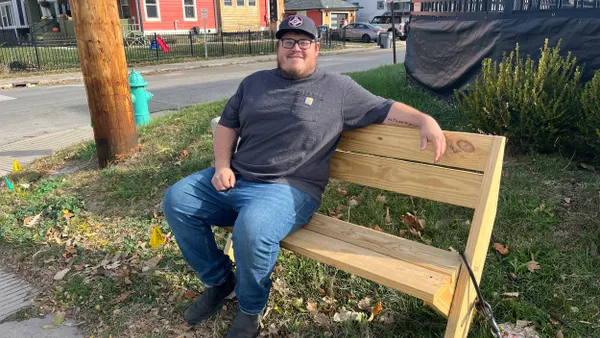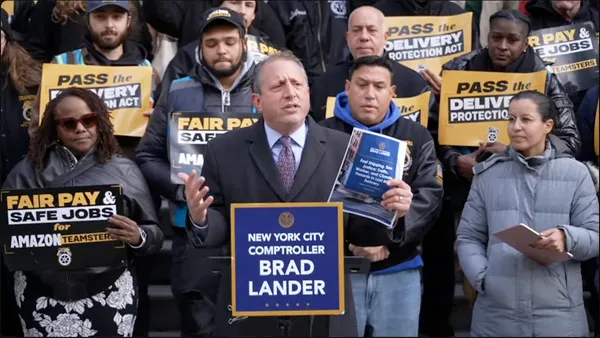Dive Brief:
- A bipartisan group of 174 mayors sent U.S. congressional leaders a letter on Jan. 16 urging them to approve an extension of the Affordable Connectivity Program, which provides internet access subsidies to low-income households.
- Current ACP funding is expected to run out this spring, meaning one in six households could see their internet bills rise, said Drew Garner, director of policy engagement at the Benton Institute for Broadband & Society. As many as 50 million households qualify for the ACP, Garner said, and nearly 23 million have enrolled to get monthly discounts on their internet bills.
- Without more congressional appropriations for the program, the Federal Communications Commission has said it will block further enrollment on Feb. 8, a strategy meant to ensure households currently enrolled in ACP can receive funding through April.
Dive Insight:
High-quality broadband is essential for U.S. residents, the mayors argue in their letter, for "connecting people to educational opportunities, telemedicine, and of course, opportunities for work and entrepreneurship," the letter states.
Through the ACP, eligible households receive up to $30 per month toward internet service, with households on tribal lands receiving up to $75 per month.
The mayors’ push to save the ACP comes as many cities are prioritizing broadband access in lower-income communities. “It’s very difficult for cities to continue this type of accessibility work without federal programs like the ACP,“ Amina Fazlullah, head of tech policy advocacy at Common Sense Media, said in an interview.
The letter, sent via the U.S. Conference of Mayors, came almost a week after a bipartisan, bicameral bill was introduced to grant an additional $7 billion to the ACP.
“Our legislation bridges the digital divide by keeping this program funded and operational through unspent COVID-19 funds so every farmer, student, veteran, or senior citizen in North Dakota stays connected,” Sen. Kevin Cramer, R-N.D., said in a statement on the Affordable Connectivity Program Extension Act.
“This bill is currently the most important thing Congress can do to protect connectivity in America,” Garner said.
If the $7 billion extension is approved, it would “give Congress and the Federal Communications Commission additional time to create sustainable funding for ACP” through the end of 2024, he added.
Other ACP advocates support the bill as a way of bridging the digital divide and contributing to overall economic growth. ACP has grown the U.S. GDP, “paying for itself almost four times over,” said Angela Siefer, executive director of the National Digital Inclusion Alliance.
While members of Congress are working to establish a budget and avoid a federal government shutdown, extending the ACP was not in the continuing resolution approved last week.
Long-term funding for the ACP
The Biden administration asked Congress last fall for a $6 billion ACP extension. But even with executive branch support for extending the program, advocates say they must continue to coordinate with members of Congress to keep ACP alive.
“Without having a long-term funding pathway, supporters of the ACP will have to keep going back to Congress,” Fazlullah said.
Advocacy groups are eyeing the potential to secure permanent funding for the ACP through the FCC’s Universal Service Fund, which subsidizes phone services and data plans for people.
However, some broadband advocates warn that this change would require an extensive, multiyear process and would take a lot of political will from Congress as well as FCC resources.
“To get into [the Universal Service Fund] will take multiple years, and [without an extension,] the ACP will run out of money well before,” Garner said.
The USF is funded in part through contributions made by telecommunications companies. For a large program like the ACP to be funded through the USF, Fazlullah said, certain aspects, like the contribution factor, would need to be adjusted.
“Congress [and] the FCC have begun that work, but it will take time,” she said, regarding contribution reform in the USF.











